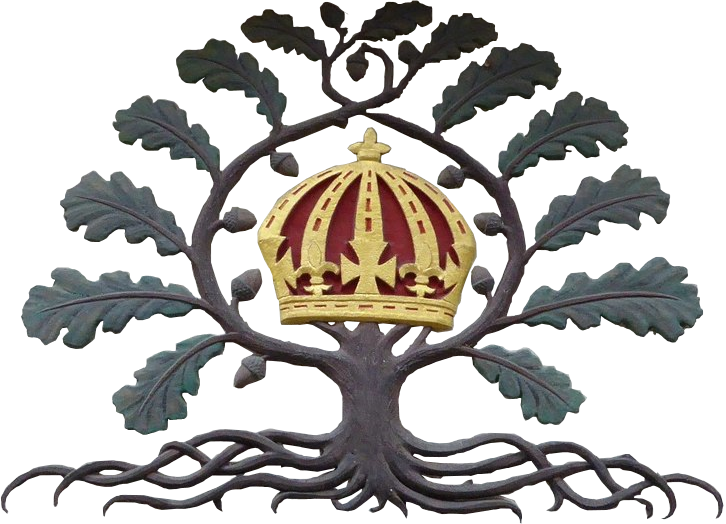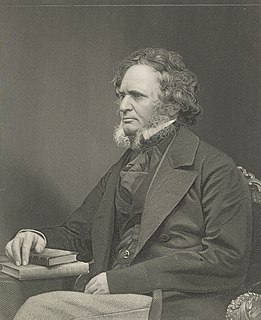
George Hamilton-Gordon, 4th Earl of Aberdeen,, styled Lord Haddo from 1791 to 1801, was a British statesman, diplomat and landowner, successively a Tory, Conservative and Peelite politician, who served as Prime Minister from 1852 until 1855 in a coalition between the Whigs and Peelites, with Radical and Irish support. The Aberdeen ministry was filled with powerful and talented politicians, whom Aberdeen was largely unable to control and direct. Despite trying to avoid this happening, it took Britain into the Crimean War, and fell when its conduct became unpopular, after which Aberdeen retired from politics.
A political party is an organized group of people, often with common views, who come together to contest elections and hold power in the government. The party agrees on some proposed policies and programmes, with a view to promoting the collective good or furthering their supporters' interests.

The Prime Minister of the United Kingdom is the head of government of the United Kingdom. The Prime Minister directs both the executive and the legislature, and together with their Cabinet are collectively accountable for their policies and actions to the Monarch, to Parliament, to their political party and ultimately to the electorate. The office of Prime Minister is one of the Great Offices of State. The current holder of the office, Theresa May, leader of the Conservative Party, was appointed by the Queen on 13 July 2016.

A Tory is a person who holds a political philosophy known as Toryism, based on a British version of traditionalism and conservatism, which upholds the supremacy of social order as it has evolved throughout history. The Tory ethos has been summed up with the phrase "God, King, and Country". Tories generally advocate monarchism, and were historically of a high church Anglican religious heritage, opposed to the liberalism of the Whig faction.
The Whigs were a political faction and then a political party in the parliaments of England, Scotland, Great Britain, Ireland and the United Kingdom. Between the 1680s and 1850s, they contested power with their rivals, the Tories. The Whigs' origin lay in constitutional monarchism and opposition to absolute monarchy. The Whigs played a central role in the Glorious Revolution of 1688 and were the standing enemies of the Stuart kings and pretenders, who were Roman Catholic. The Whigs took full control of the government in 1715 and remained totally dominant until King George III, coming to the throne in 1760, allowed Tories back in. The Whig Supremacy (1715–1760) was enabled by the Hanoverian succession of George I in 1714 and the failed Jacobite rising of 1715 by Tory rebels. The Whigs thoroughly purged the Tories from all major positions in government, the army, the Church of England, the legal profession and local offices. The Party's hold on power was so strong and durable, historians call the period from roughly 1714 to 1783 the age of the Whig Oligarchy. The first great leader of the Whigs was Robert Walpole, who maintained control of the government through the period 1721–1742 and whose protégé Henry Pelham led from 1743 to 1754.

The Kingdom of Great Britain, officially called simply Great Britain, was a sovereign state in western Europe from 1 May 1707 to 31 December 1800. The state came into being following the Treaty of Union in 1706, ratified by the Acts of Union 1707, which united the kingdoms of England and Scotland to form a single kingdom encompassing the whole island of Great Britain and its outlying islands, with the exception of the Isle of Man and the Channel Islands. The unitary state was governed by a single parliament and government that was based in Westminster. The former kingdoms had been in personal union since James VI of Scotland became King of England and King of Ireland in 1603 following the death of Elizabeth I, bringing about the "Union of the Crowns". After the accession of George I to the throne of Great Britain in 1714, the kingdom was in a personal union with the Electorate of Hanover.

John Russell, 1st Earl Russell,, known by his courtesy title Lord John Russell before 1861, was a leading Whig and Liberal politician who served as Prime Minister of the United Kingdom on two occasions during the early Victorian era.

Edward George Geoffrey Smith-Stanley, 14th Earl of Derby, was a British statesman, three-time Prime Minister of the United Kingdom and, to date, the longest-serving leader of the Conservative Party. He was known before 1834 as Edward Stanley, and from 1834 to 1851 as Lord Stanley. He is one of only four British prime ministers to have three or more separate periods in office. However, his ministries each lasted less than two years and totalled three years and 280 days.

William Wyndham Grenville, 1st Baron Grenville, was a British Pittite Tory and politician who served as Prime Minister of the United Kingdom from 1806 to 1807, though he was a supporter of the British Whig Party for the duration of the Napoleonic Wars.
A national unity government, government of national unity, or national union government is a broad coalition government consisting of all parties in the legislature, usually formed during a time of war or other national emergency.

The Tories were members of two political parties which existed sequentially in the Kingdom of England, the Kingdom of Great Britain and later the United Kingdom of Great Britain and Ireland from the 17th to the early 19th centuries. The first Tories emerged in 1678 in England, when they opposed the Whig-supported Exclusion Bill which set out to disinherit the heir presumptive James, Duke of York, who eventually became James II of England and VII of Scotland. This party ceased to exist as an organised political entity in the early 1760s, although it was used as a term of self-description by some political writers. A few decades later, a new Tory party would rise to establish a hold on government between 1783 and 1830, with William Pitt the Younger followed by Robert Jenkinson, 2nd Earl of Liverpool.

The 1852 United Kingdom general election was a watershed in the formation of the modern political parties of Britain. Following 1852, the Tory/Conservative party became, more completely, the party of the rural aristocracy, while the Whig/Liberal party became the party of the rising urban bourgeoisie in Britain. The results of the election were extremely close in terms of both the popular vote and the numbers of seats won by the two main parties.
The Peelites were a breakaway dissident political faction of the British Conservative Party from 1846 to 1859 who joined with the Whigs and Radicals to form the Liberal Party.
Charles Noel Somerset, later 4th Duke of Beaufort, was born on 12 September 1709, the younger son of Henry Somerset, 2nd Duke of Beaufort and his second wife, Rachel Noel. He was educated at Winchester School and graduated from University College, Oxford in 1727.
The Radical Whigs were a group of British political commentators associated with the British Whig faction who were at the forefront of the Radical movement.
Whiggism is a historical political philosophy that grew out of the Parliamentarian faction in the Wars of the Three Kingdoms (1639–1651). The Whigs' key policy positions were the supremacy of Parliament, tolerance of Protestant dissenters and opposition to a "Papist" on the throne, especially James II or one of his descendants.
The term "Radical" during the late 18th-century and early 19th-century identified proponents of democratic reform, in what subsequently became the parliamentary Radical Movement.
The Patriot Whigs and, later Patriot Party, were a group within the Whig party in Great Britain from 1725 to 1803. The group was formed in opposition to the ministry of Robert Walpole in the House of Commons in 1725, when William Pulteney and seventeen other Whigs joined with the Tory party in attacks against the ministry. By the middle of the 1730s, there were over one hundred opposition Whigs in the Commons, many of whom embraced the Patriot label. For many years they provided a more effective opposition to the Walpole administration than the Tories.
In Britain in the era 1680–1740, especially in the days of Robert Walpole, the country Party was a coalition of Tories and disaffected Whigs. It was a movement rather than an organised party and had no formal structure or leaders. It claimed to be a nonpartisan force fighting for the nation's interest—the whole "country"—against the self-interested actions of the court party, that is the politicians in power in London. Country men believed the court party was corrupting Britain by using patronage to buy support and was threatening English and Scottish liberties and the proper balance of authority by shifting power from Parliament to the prime minister. It sought to constrain the court by opposing standing armies, calling for annual elections to Parliament, and wanted to fix power in the hands of the landed gentry rather than the royal officials, urban merchants or bankers. It opposed any practices it saw as corruption.
In British politics, a Whig government may refer to the following governments administered by the Whigs:













